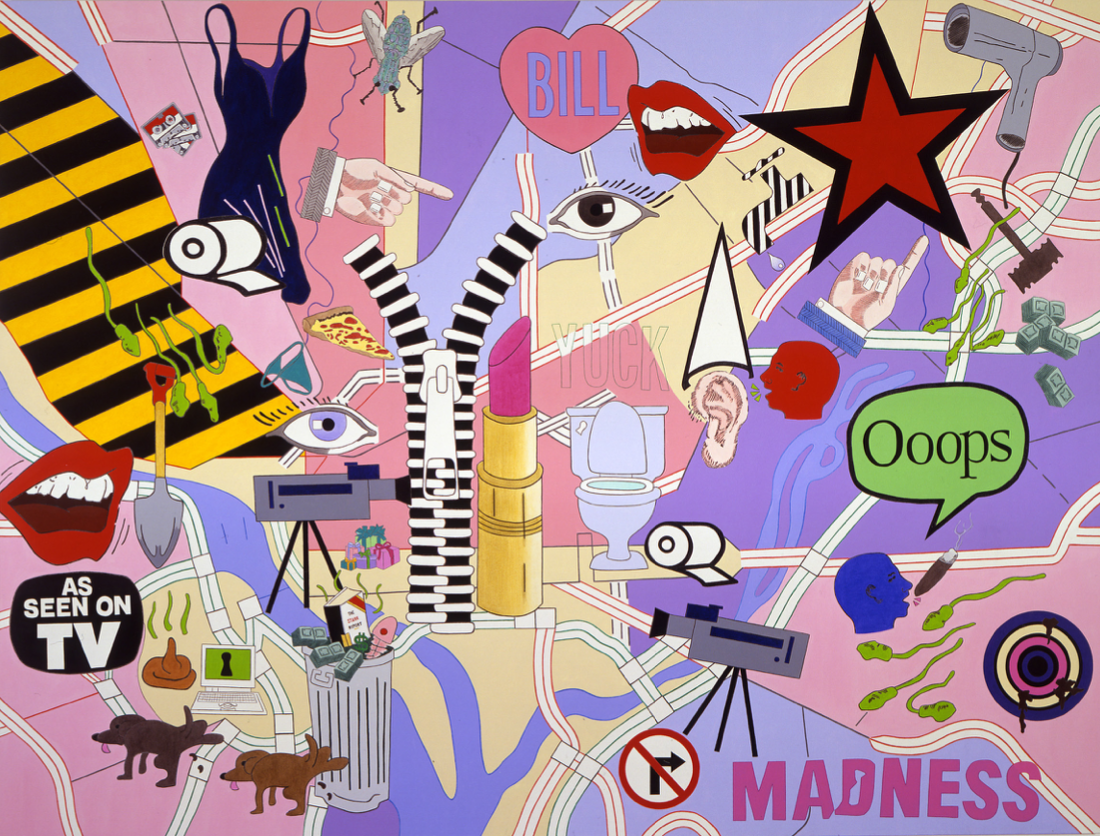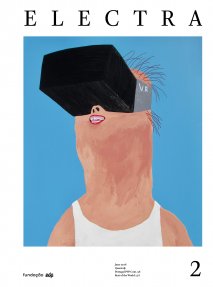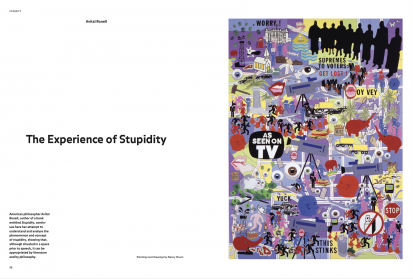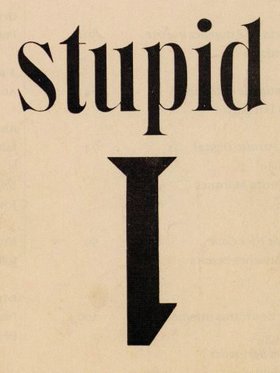Presumed foundations
American philosopher Avital Ronell, author of a book entitled Stupidity, continues here her attempt to understand and analyse the phenomenon and concept of stupidity, showing that, although situated in a space prior to speech, it can be appropriated by literature and by philosophy.
Literature has been fearless about immersing itself in modalities of stupidity as theme, object, or grounding fiction. It revels in breaking down forms of idiocy and their secret types of disclosure. Ever since psychoanalysis, which has relied heavily on literary insight, helped point the way to the unconscious, a dark reserve of obscured self-knowledge, we are obliged to seek those dimensions of being that remain locked in incomprehension, remote from our ability to grasp or act or be certain about the prescriptive bait we habitually take and act upon. For me, the engagement with stupidity is like pulling an emergency brake, part of an ethical desperation, as when trying, in one’s imagination, at least, to halt a long and cumbersome train of historical occurrence. So much that happens in the realm of politics has reviled yet compulsively repeats ignorance, based on presumed foundations of knowledge—on axioms supposedly tried, tested and approved by cognitive guarantors that appear to be reliable. Even Donald Trump has announced on television that he is a “balanced genius,” once again throwing us all off balance with his idiotic self-assessment. But the urgency of veering away from the devalorizations of stupidity, a political liability and yet winning maneuver, even among the dumbest and most pernicious players, is what catches our attention. Not only have politicians made good use of stupidity, whether as mask or personality chart, but the smartest among us cannot evade its encroachment. So many writers and militants have felt hounded by the specter of stupidity—one of Marx’s prime concerns when trying to imagine who would run the revolution without falling prey to stupidity’s inescapable traps. Given over to extreme poses of humiliation the subject is susceptible to mistakes of historical moment, to chronic mismeasure, the snares of cognitive failure, the mindless hum of repetition compulsion and blind falsifications. It starts early in life, hard to throw off or avoid. Once in a while you can find the seeds of stupidity enthroned in the pleasure principle, companion to giddy delight and intimate allures of…love.
Stupidity accompanies the fundamental unreliability of language’s positing habits, disclosing in its own bumbling way the scandal of routinely faltering assumptions, mismanaging the promise of meaning. The refusal to consider stupidity as a theoretical challenge poses a problem for all thought and thinking processes, for the disruptive procedures on which we depend—everything that aligns with thought, thinking, and probing forms of social activism. For how can one genuinely apply oneself to the task of thinking if one blindly moves along points of obscurity that are regularly covered up or forgotten? Yet, stupidity, as I argue, is not merely the opposite of thought. To the extent that thinking plunges into the night of non-knowledge, a wide range of surprise attacks ensue, bringing about not only what oppresses, but also unanticipated délices, the tremors of sensation that incite newness, stirring everything that we can’t be sure of—the unrecognizable, the future, mutations in being as well as unaccountable aggressions, the ceaseless dreariness of worry, or the dazzle of caress, such as Lévinas, Derrida and Nancy spark off. To the extent that thinking is prone to abandoning itself to extreme forms of self-questioning and abyssal doubt, it belongs to a fold in Stupidity’s dossier.
The reflection on pervasive forms of social and political idiocy provoked Robert Musil to write “The German as a Symptom,” a significant start-up, in some ways partnering with Nietzsche and Jean-Paul to hunt down nationalist symptomatologies. National entities not only impose themselves ruthlessly upon the world’s populations, whether migrant or rooted, as dangerous symptoms; they also carry symptoms that they are not capable of comprehending—hosting unavowed disturbances, allowing entire nations blindly to attack the world along with their own interests, or crudely manipulating to destroy its more crucial projects of reparative justice and care. I am not neglecting greed as a motor for destructive national behaviors, nor other material prompters. But such motors, including greed, tend to go hand in hand with stupidity—entailing collective types of feeblemindedness, acquired stocks of idiocy, even learned ignorance. One should never forget the couple, “mean and stupid,” that play a leading role in political decision. As concerns particularly groomed forms of national idiocy, those who wield power appear to be the most endangering to the rest of the planet. Still, smaller apportionments of stupidity also prove capable of taking down the whole house. According to the German Romantic writer, Jean Paul, one ought to look out for the termites that gnaw at our very foundations, compromising our home-bases, rather than focusing on the more grandiose articulations of stupidity. The House of Being goes down by means of a steady series of minor incursions, until it collapses on itself. One needs to be wary of the interminable-terminable infestation of termites who knock out our defenses and target the immunological strength of those who in fact are vulnerable—the poor, the hungry, the disenfranchised as well as the so-called stronger positions equally susceptible to attack by stupidity, including their own repertory of blind and mean-spirited destructive inclinations. Difficult to contain phenomenologically, stupidity roves and roams according to stealth maneuvers that cannot always be captured by our most high tech shit-detectors.
“I am dead because I am stupid”, Nietzsche
Lower than tragedy, irrecuperable to higher forms and aims, set on the embittering human-all-too-human dial, some forms of stupidity lower your philosophical immunity. You just can’t seem to take it anymore, much less “take it philosophically” anymore; you can’t even raise a complaint about the recalcitrance of stupid blockages: you prove incapable of sending up a lyrical lamentation to be musically sponsored by a future Monteverdi. Hair-raisingly frustrating, stupidity is not simply alien to refinement either. Nearly everybody or program or system, whether analytic, speculative or pragmatic, fears the contamination of the inescapable force. When Marx was a teenager, and eventually in his letters to Engels, he was obsessed with stupidity, especially with its pernicious hold on the Germans and disruptive power over revolution—who could trust the proletariat to have disentangled itself, he worries, from the evident snares of stupidity? The dimwitted Germans could not be counted on for any truly progressive political innovation, Marx feared. It’s political; it’s personal. Sometimes your lover betrays you and you have fury enough only to howl: you are left spinning your cognitive wheels, in dumb incomprehension. At the same time, it’s all too clear. You’ve been screwed—whatever, in all sorts of positions that you mull over with drunken singlemindedness. The betrayal peels off layers of a once-shared field of signifiers, affects your language; you can’t even say the too-sayable. Incredulous, you are taken down a few notches, left miserably to complain that things are avowable, all too avowable. You throw in the towel. Surprisingly, the writing, compromised by the most mundane letdown—who has not yelped at the mediocre inevitability of such a scene of betrayal and the triumph of stupidity?—the writing continues, alternating between frequencies of plaintive rage and the calming returns of remembrance, no matter how stupid the sellout was.
One tries to contain an encroaching sense of rage, uncontrollably on the take. The complaint thrown at stupidity’s encroachment must not tip over into hate speech, a constant temptation and vanishing point for any signatory. Poetic thinking strives instead to offer protection, securing the terrain from which the Hölderlinian gods, ever dependent on language, have fled. Yet, anger competes with such a complaint, threatening to disrupt its course of relative incapacitation, as if two types of impotence were in mortal rivalry. As wounded beings, we are already dead: “Nous sommes déjà morts, nous le savons. Même les enfants le savent, et du reste ils en pleurent. Il n’y a là aucun secret” (We are already dead, this we know. Even the children know and, what is more, they cry over this. There’s no secret here).1 In the end, Nietzsche left us with two utterances that I cling to, even though one cannot be sure with Nietzsche where to locate the end. He wrote down: “I am dead because I am stupid;” and “I am stupid because I am dead.” Somehow Lacoue-Labarthe picks up the relay to underscore the death that dumbfounding betrayal marks.

Sword of Damocles by Ivan Sutherland, the beginning of virtual reality, 1968
The lure of immaturity
Let me ask you this: Have you ever met a truly mature being (in the sense that exceeds acknowledging mere checkpoints of aging and the disposition that allows for stepping back, lucidly cooling one’s engines)? There may be some human states of exception here and there, but they, too, show the tendency to lapse into immaturity.
According to Lyotard, the shock of puberty, the rattling call, shapes our political narratives, even as it apparently recedes to raise havoc on more unconscious channels of social behavior. If I am getting this right, the brand of hysteria ascribable to puberty cuts into the spheres of political performance and agonized concern for justice in a number of ways. My own assessment, reading psycho-analysis’s victims of recurring puberty, is that the excited teen, running high on self-inflationary fuel, and disrupted by an untranslatable address, sparks the scene of action. Puberty’s claims announce themselves each time uniquely, in full revolt of what is.2 The runaway teen spirit, going nowhere fast, riveted by a sudden arousal, an awakening, enters a stretch of being that remains enigmatic and active, infiltrating all manner of social practice. Occupied to a considerable degree by adolescent tropes of giddiness, overabundance, sarcasm, attack and ruin—the despondencies and grammars of excitability—the stoppers and starters of social responsiveness still need to be accounted for, even if we lack a grid to tabulate the saturation of the political according to adolescent excitability. Aligned with Abraham and Emma, in terms of the disturbing jolts visited upon these hapless receptors and written up by Lyotard, Hamlet, for his part, proves to be terror-riven as he tries to field a deracinating call that spurs him to stand up in submissive readiness. On one level, though very differently apportioned, they share the predicament of receiving an instruction, an intrusive charge and convocation that they are too dumb to fathom. They are cocked to respond to a call: ready or not, adolescents are made to assume that a call is meant for them. Hamlet understands that “readiness is all.” But was he ready for what was coming at him? The call rips through them before they are prepared to become who they are, marking an experience of shattering decision that, paradoxically, makes them who they are, skipping the beat and reassuring timing of becoming. They are riveted and invaded by a ghostly call under whose authority they are bound to freeze up.
There are calls that are really not meant for those overactive teenagers who presume to be born to set things right – or «make America great again.»
The affective haze
The numbed reluctance to assume responsibility for what continues to arrive unannounced, the coercive pull to take the call sustains the affective haze of political torpor and childish recoil. Still, there are calls, as I have tried to track elsewhere, that should not be taken and are really not meant for those overactive teenagers who presume to be born to set things right—or «make America great again.» Ach! This is all very difficult to sort out, and there is no way adequately (or justly) to size up the degraded morph that Trump represents by measure of Hamlet. Still, there is something about immaturity and the mechanism of chronic complaint that binds them, if on a distorted plane of fun house visuals. One has been stripped of linguistic capacity on which the other expands; yet, they communicate symptoms and share a failure that we will not soon shake. Immat- urity mismanages hesitation, skipping over its exigency with teenaged blindness.
A plan at least has been outlined, emerging from these primal and pulsating jolts that exhort us to adjust a practice to the endangered stance of rigorous hesitation—a concept developed by Lacoue-Labarthe in the thought of cautious ethicity.
The childish nature, wary and ever incredulous on the one hand, prematurely triggered, tight and ready to spring to action on the other, must lean into the emptiness of the voiding call, another name for puberty’s shakedown. It would be wrongheaded to think that one could simply skip over the motif and developmental-historical stopover of puberty when modern politics have depended so emphatically on teenaged mythologies and fast-tracking disasters.
The stirrup of archaic pain belongs to one of Freud’s enduring insights: hatred, ambivalence, aggression and other human outreach programs in the spheres of negativity cannot simply be repressed but are bound to return and pound hard. Repetition compulsion does not simply go into fade-out. The destruction of an imago, its concession to the stupidity of vulgar greed and racist debasement hits home in ways that cannot be underestimated. Let me make this personal.
In my imaginaire, America was meant to gather us up in our tattered clothing, pointed us to a certain, if risky, horizon of promise, allowed us to dream it up according to outrageous protocols of becoming. I was suckled by the generous indication of the American dream. The shutdown marked by Trump has thrown an axe into my imaginaire, momentarily congealed as a frozen sea, to speak with Kafka. In Kafka’s prophetic novel, Amerika, the Statue of Liberty, legendary welcoming committee to the destitute, holds a dagger in her clenched fist.
I don’t think stupidity takes the lead role when it comes to prompting racist and misogynist assaults. In Lacan laced with Klein, the other is seen to take away what you don’t have, marking your deficiency, which gets traded out in projective waves of envy and aggressive clawing at the facticity of the other’s very existence. The target of envious rage gets consistently disparaged and hurt, even if left, so to speak, ontologically intact.
Philosophy has developed from the start a phobia against stupidity, and has concocted all sorts of avoidant strategies in order to protect itself from the gnawing implications of the facticity of the more stupid, puerile, ridiculous aspects of existence.
The obscure ravishment of stupidity.
Seriously, how can one offer to shed light on anything in the context of stupidity? Henceforth, one cannot simply intend to make things “clear” or promote the trajectory of ascent toward light. This in part is because the engagement with stupidity cannot properly illuminate, but must endure the eclipse of the sun—the figure and trope that has been associated traditionally with cognition. The heliotropic sway of knowledge must be relinquished for the purposes of bringing this thought and its implications forward anew. Claims for illuminating undiscovered or repressed areas of reflection must be provisionally suspended, even though they belong to a reassuring zone where rhetorical persuasion shines upon and governs the field of discourse. One must proceed with a different sense of figuration. Instead of relying on the sizable stock of light-metaphors at our disposal, one must henceforth lead the way into darkness, confront obscurity, in order to reach ostensibly the other side of knowledge’s domain, so often bathed in brightness and the shining emblematics of truth. What happens when we no longer dwell in the metaphorics of light? Freud was arguably the first among thinkers in modernity to lead toward the dark spaces, constricted areas that close out the knowing subject. His work urges us to probe the dimming of light and to question the certitudes promised only to the bright side of understanding. Nietzsche was not far behind in effecting this reversal, scoping the twilight in his own essential way. Both breakthrough thinkers called for a darker radiance, keeping us attuned to an unrelenting pace of faltering, unconscious rumbles, and the persistent stagger around the corners of obscurity.
In my work I’ve underscored the necessity that some movements of thought have felt of snuffing out the light, leaving maybe a flicker to commemorate the times and promise of the heliotrope. It may seem odd that a philosophical sensibility, trained in poetry and thought, would be drawn toward the unseemly motif of stupidity. However, the engagement with the edges of unintelligibility has a long history, following somewhat of an alternative track in the historical account of thought. In the 18th century, Goethe plunged into the depth of darkness, writing against Enlightenment currents, when he had Werther unreasonably pursue his Krankheit-zum-Tode—a notion of “sickness unto death” provoked only by the unstoppable impulse for self-destruction. One thinks of Friedrich Schlegel’s essay, “Über die Unverständlichkeit” (On Unintelligibility), that starts up an account, with approving evaluations, for dealing with the necessity of that which evades understanding and requires stances of non-knowledge. From Schlegel to Georges Bataille, Jean-François Lyotard and Jean-Luc Nancy in our times, there is a sensitivity to the way the world is constituted without making sense, without submitting to the totalizing impetus of meaningful yields. Christianity makes extraordinary pitches for transcendental types of ignorance, a release from knowledge and embrace of faith—this gets complicated, but also attaches to asserted modes of simplicity and the sacred attributes inherent in the simplistic bareness of being. The value of simplicity is something that I look into with a view to registering other forms of relatedness to what we cannot know, often disclosing a disavowed link to groundlessness. But here I am getting ahead of myself. Maybe I do not need to compose an exhaustive inventory of philosophemes and historical nudges at this time, moving in the direction of Stupidity and its cognates, an operation that would involve lining up qualities of sacred, plain, prosaic, aggressive and insulting dimensions of existence. Maybe any such tilt toward systematicity—a move that tempts me—is not called for in these remarks. Let me make things simpler for all of us, guide us further without indulging the compromising rhetoric of light or drown out Stupidity by recruiting conceptual instruments and the overly bracing capacities of system. I can certainly not offer either a totalizing inventory of terms and stakes on which this work stands, nor even construe a dialectical summation of an argument that would illuminate relevant strands of stupidity; yet I can, I hope, offer at least a helping hand so that we can turn the page with some sense of shared hermeneutic complicity.
Tending to throw myself against the prevailing winds of philosophical tradition, I have wanted to take a close look at what is normally repressed by philosophical arguments and their well-marked trajectories. Philosophy, as Gilles Deleuze notes, has developed from the start a phobia against stupidity, and has concocted all sorts of avoidant strategies in order to protect itself from the gnawing implications of the facticity of the more stupid, puerile, ridiculous aspects of existence. This habit of systematic avoidance has deprived philosophical discourses of a valuable field of complexity and thought. If one remains ignorant of the effects and inroads of stupidity, how can one be trusted to understand the more weighted vocabularies and inventories of intelligence and its attendant figures of cognition—lucidity, learnedness, the ability to form judgment, a capacity to advocate for justice and take ethically strong stands when called upon to do so? When engaging stupidity I thought it was time to explore an experience devoid of knowledge, often shrouded in ambivalence, if at all avowed—something that literature exemplarily profiles and that scientists such as Albert Einstein or, on another scale, Karl Marx, took into consideration when gauging the limits of their worlds.

© Nancy Chunn
In the precincts of Derridian scrutiny.
As Musil, Roland Barthes, Thomas Pynchon, Einstein, and others note, stupidity functions somewhat like a smart missile encrypted with your address that can get you at any point, taking down all hopes of intelligent discovery or rhetorical finesse. One is always prey to stupidity’s onslaught, for it disables you and is locked into all thought, owning every bit of writing, even when you feel you are at a great remove from the pernicious disturbances of which stupidity proves capable. Sometimes you think that you are called to a task, that you are skilled or fitted or trained to handle it, that you have received the proper and sufficient instruction and training. But, as in Kafka’s depiction of Abraham, you discover that, in fact, you are not up to the task; rather, you discover the extent to which you are vulnerable to ridicule and reprobation. Ridiculous and exposed, you are largely incapacitated when facing some of life’s greatest challenges. Arrogant presumptions undermine one’s every move, unsupported by ground or reason. Stupidity, in so many crucial ways, is linked to the most dangerous failures in human endeavors. Elusive and inappropriable as any history of stupidity must be, it has provoked some scholarly curiosity and determination. I try to see where it produces violations in our Mitsein or the forms we have of being-together, where sheer stupidity becomes responsible for ethical breaches—but also for a surprising openness in the way we encounter the world and the pained existence that it contains. Sometimes “ignorance is bliss.” I do not want to ignore such enticing aberrations, the way we are exposed to not knowing what the heck is going on in a possibly affirmative sense, when control is relinquished and pretense of mastery derailed or provisionally suspended.
Before closing these remarks that are meant to invite and encourage further reading, I would like to tell you about an event that caught me off guard, leaving me stupefied. One of the last gifts that Jacques Derrida offered—he still keeps them coming, as his works will continue to be published by Editions Galilée and its off-site affiliates for the next 40 years!—entailed a seminar delivered to the European Graduate School in 2004. The philosopher was ailing at the time, too tired to make the trek into the sublime Alpine regions of Switzerland, where we normally congregate, so we came to him, in Paris. We gathered in the loft of one of the students and began our work with Derrida’s thought.
Introducing and situating the occasion according to the protocols of scholarly presentation, and even though I’ve done so a thousand times, I was trembling with anxiety, hoping to do justice to the great teacher and beloved mentor. There was a moment where everything went silent: we were, as a group, tensely, excitedly, oriented toward his language, awaiting his lecture. We had been advised to prepare for a session on forgiveness. Instead, Derrida dealt another hand. He decided to address the paraconcept of stupidity, which, I’ll admit, put me off balance, since it meant that he would be engaging the book I had just published on that recalcitrant topic. Derrida’s decision to turn his thought toward stupidity presented me with something like a crushing honor. (Cards on the table, full disclosure: Given my paranoid infrastructure, I also, in the back of my mind, worried that he was out to get me, snuff me out in some inescapable way.) I was very close to my teacher. He had the power to uplift but also to decimate his students, even though he practiced, for the most part, gentler forms of pedagogy. He did not aim to humiliate or bring harm to his disciples. He flourished when we were on top of our game, delivering with what looked like intense skill and athletic focus. Still, the effects of his decisions were not always in his control. Derrida had taught us that trauma is not only a result of damage done or anticipated, but can be tied to happiness as well. That’s more or less what I felt, traumatized in the precincts of Derridian scrutiny—lucky and screwed. It’s not easy to describe what happens to a Dasein when a venerated teacher reads and produces a commentary close to the heart of one’s writing, no matter how critical or protectively caretaking, generous, it turns out to be. But my fears were inflated. In some ways I was just a conduit to another set of relations: the true seat of address, one could say, were Deleuze and the other Jacques, Lacan. There were a few sidebars with Heidegger. At some junctures of his elaboration, all of Metaphysics is called to the bench. Maybe I was a start-up engine for an acute Auseinandersetzung, a coming to terms—or blows—with the still- traditional premises that Deleuze, Lacan (and Heidegger) hold when it comes to animality, bestiality, bêtise—the French word, though off-scale, for “stupidity.” Derrida invited my work on stupidity to participate in the arguments that run through his book, The Sovereign and the Beast, which was also meant to be the topic for the last seminar we planned together for his annual visit to New York University. Surely, one cannot escape the edges of irony when I think, with quivers, that Derrida engaged me on the subject of stupidity, ach!...In conversation, he liked to recall the section on “the ridiculous philosopher” initiated by Kant, where I describe the way the philosopher necessarily is subject to exposure and specific forms of devalorization, a kind of public nuisance. There is so much more to say about the way the philosophical being must self-efface, downgrade herself, morph ceaselessly.
Perhaps I have said too much already as I stagger blindly into the re-opening of this case study that in so many ways involves the history of thought. I thank my friends in Lisbon, particularly António Guerreiro, for inviting me to stumble again within the precincts of Electra’s probing eye.
1. Philippe Lacoue-Labarathe, Phrase, Paris: Christian Bourgois, 2001, p. 48.
2. Ibid., p. 177





Share article